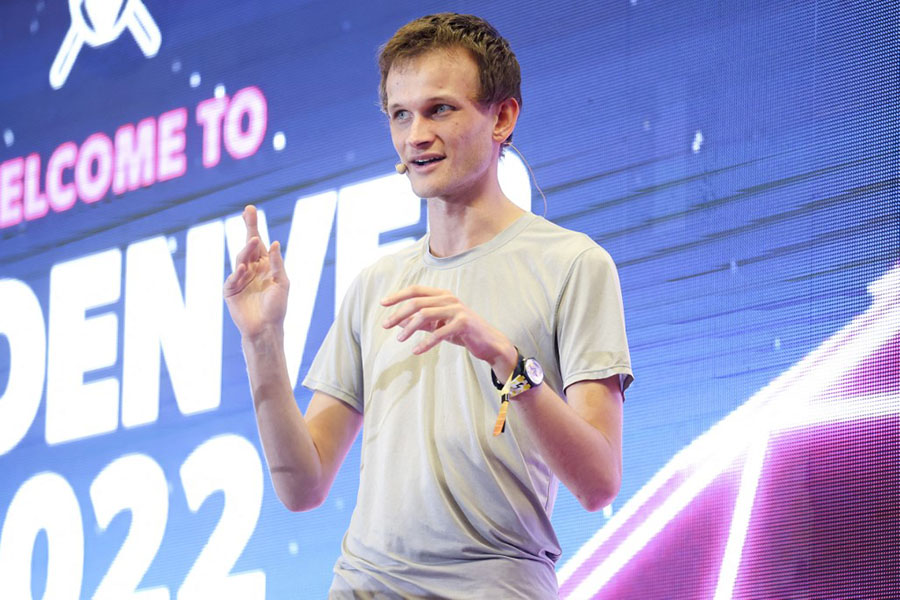Key Points:
- Vitalik Buterin sees decentralized social platforms as more than foundational tech; they’re transformative game-changers.
- Sybil’s resistance is critical for ensuring genuine interactions and combating fake accounts on decentralized networks.
- Buterin aims to incorporate decentralized social platforms into the wider Ethereum network to improve security and user privacy.
At the recent Permissionless Conference, Ethereum’s co-founder, Vitalik Buterin, voiced his enthusiasm for the game-changing possibilities of decentralized social networks. His enthusiasm centers around crypto-enabled solutions, particularly those built on the Ethereum network, like Farcaster—a decentralized social protocol resembling Twitter.

Transforming Social Media Through Decentralization
Buterin engaged in a compelling conversation with David Hoffman, shedding light on the current state of the crypto world. While acknowledging the burgeoning growth of Decentralized Finance (DeFi), the popularity surge of Non-Fungible Tokens (NFTs), and the increasing mainstream acceptance of cryptocurrencies, he argued that these are merely foundational elements. According to Buterin, the existing developments still mirror traditional Web2 architectures, and there is room for more innovative disruptions.
The crypto visionary sees a future where decentralized social media platforms like Farcaster and Lens—developed by Aave-founder Stani Kulechov—serve as game-changers. These platforms, Buterin emphasized, could offer a more secure and privacy-preserving alternative to their centralized counterparts.
Farcaster operates on Ethereum’s mainnet and features a companion mobile app called Warpcast. Similarly, Lens runs on Polygon’s proof-of-stake chain. Buterin’s endorsement of these ventures underscores his dedication to unearthing new pathways in the crypto landscape.
One of the hurdles decentralized platforms must overcome, Buterin stressed, is Sybil-resistance—a mechanism to thwart fake accounts and ensure genuine interactions. The goal is to establish a network where likes, followers, and engagement are linked to actual users, mitigating the risk of manipulation by bots or malicious entities.
Addressing Challenges and Integrating into the Ethereum Ecosystem
But the scope of Buterin’s vision isn’t limited to revamping how we interact online; he envisions these decentralized social platforms becoming an integral part of the broader Ethereum ecosystem. By integrating these platforms seamlessly, he aims to unlock blockchain technology’s full potential, shaping a digital world that is not only decentralized but also more secure and privacy-focused.
To bring this vision to life, Buterin mentioned several foundational technologies. He pointed to the Ethereum Name Service (ENS), Proof of Humanity protocols, and Proof of Attendance Protocols (POAPs) as essential building blocks.
Furthermore, he hinted at developing a next-gen version of POAPs utilizing zero-knowledge technology to bolster security and privacy further. Buterin also recognized the significance of projects like Gitcoin Passport, demonstrating how Ethereum can function as the backbone of a more interconnected digital realm.
Conclusion
Vitalik Buterin’s recent remarks underscore his commitment to pushing the boundaries of what is possible in the crypto and blockchain space, especially in decentralized social media. His endorsement of Farcaster and Lens indicates an optimistic future for a more decentralized and secure digital world.
Personal Note From MEXC Team
Check out our MEXC trading page and find out what we have to offer! There are also a ton of interesting articles to get you up to speed with the crypto world. Lastly, join our MEXC Creators project and share your opinion about everything crypto! Happy trading! Learn about interoperability now!
Join MEXC and Get up to $10,000 Bonus!
Sign Up


